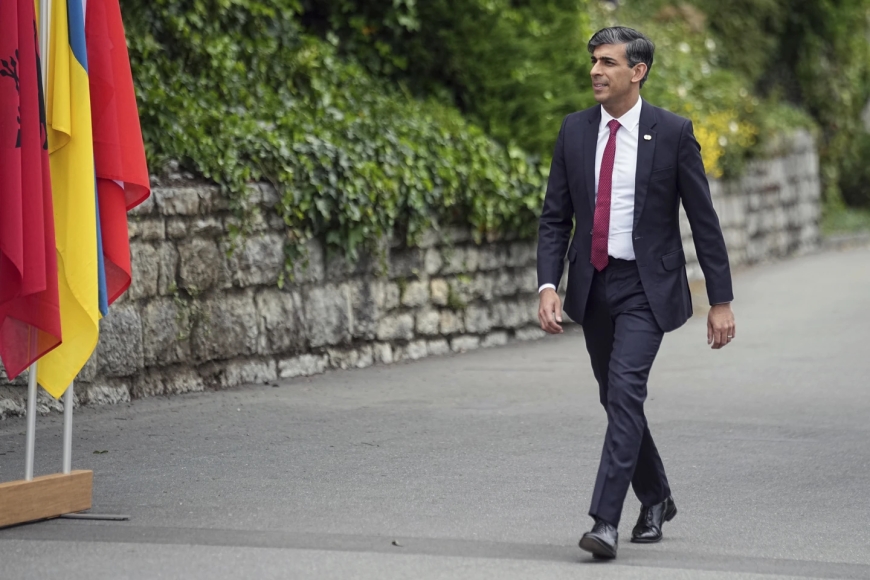Britain’s July 4 Election Approaches as Rishi Sunak Faces Uphill Battle

The U.K. leader has recently traveled to a Group of Seven summit and a Swiss conference on the Ukraine war but remains dogged by questions about whether voters will bring his time in office to an abrupt end on July 4. Polls continue to show the left-of-center opposition Labour Party, led by Keir Starmer, holding a double-digit lead over Sunak’s Conservatives, who have been in power for 14 years under five different prime ministers.
Sunak’s efforts to close the gap have had little apparent impact. A significant misstep occurred when he decided to skip an international ceremony in France on June 6, marking the 80th anniversary of the D-Day invasion, leading to widespread criticism and continued apologies from Sunak.
Political commentators are beginning to discuss potential doomsday scenarios for the Conservatives, who have governed Britain for almost two-thirds of the past 100 years and secured 365 of the 650 seats in the House of Commons in the 2019 election.
Manifestos and Key Issues
Both major parties released their election manifestos recently. The Conservatives focused on reducing immigration and lowering taxes, pledging £17 billion ($22 billion) in tax cuts by 2030, largely by slashing welfare costs. Labour promised to rejuvenate the economy through a new industrial policy, infrastructure investment, cutting planning red tape, and building 1.5 million new homes, while committing not to increase personal taxes. However, the Conservatives argue that Labour’s plans will ultimately raise the tax burden.
Critics from both sides note that neither party is fully addressing the necessary tax increases to repair public services, which have suffered from years of Conservative-led spending cuts, Brexit, the COVID-19 pandemic, and the cost-of-living crisis triggered by Russia’s 2022 invasion of Ukraine.
Hannah White, director of the Independent think-tank the Institute for Government, pointed out the glaring omission in both manifestos: "The gaping hole in both parties’ manifestos is a reckoning with the scale and severity of the fiscal problems that will confront whoever wins the election."
Rising Challenges
The Conservatives’ prospects have dimmed further with populist leader Nigel Farage entering the race with the right-wing party Reform U.K. Although Reform is unlikely to win many seats, its rising vote share seems to be eroding Conservative support. This has led Conservative leaders to shift their messaging, warning that voting for Reform could result in a Labour landslide.
Transport Secretary Mark Harper emphasized this point on the BBC, stating, “If you vote for anybody else other than a Conservative candidate, you’re going to get a Labour government with a large majority.”
Labour, meanwhile, remains vigilant against complacency among its supporters. Health spokesman Wes Streeting cautioned that there was “breathtaking complacency in the media” about Labour’s poll lead.
Sunak's Determination
Despite the challenging landscape, Sunak, who has been in office for less than 20 months, insists he is still fighting to win. In an interview with the Sunday Times, Britain’s first Hindu prime minister expressed his guiding principle of dharma, which he interprets as “doing your duty and not having a focus on the outcomes of it.” He stated, “Work as hard as you can, do what you believe is right, and try, and what will be will be.”
As the election day nears, Sunak’s ability to rally his party and sway undecided voters will be crucial. With time running short, the Conservative Party faces a critical test of its leadership and policies amid a backdrop of significant political and economic challenges













































